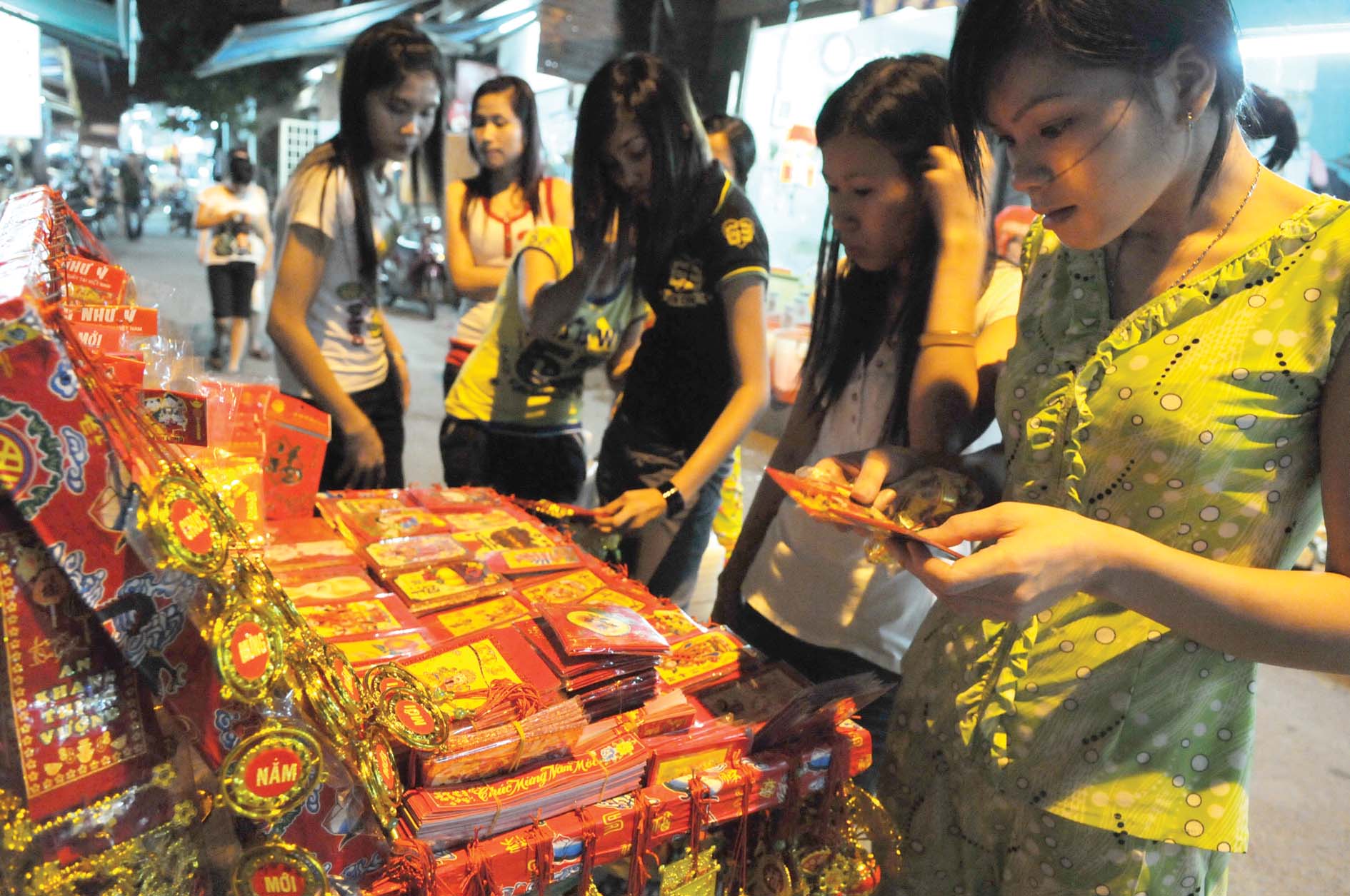Traditionally the most special and waited-for holiday in Vietnam, the Lunar New Year usually arrives around late January or early February. The first three days of the springtime new year are celebrated by everyone, although for many others, the festivities and other forms of celebrations can last an entire week.
Many traditional customs are practiced on this special occasion, like honoring ancestors’ spirits, visiting close relatives on the first day of the Lunar New Year, exchanging New Year wishes with relatives, neighbors and friends, and especially giving li xi, or lucky money, to children and elders.
This custom is a way of wishing good luck for both children and senior people during Tet. It is also a symbol of good health, success, and happiness.
Despite staying up late on New Year’s Eve to celebrate the arrival of a new year and especially to observe traditional rituals dedicated to greeting their ancestors’ spirits coming back to the family for the occasion, local people wake up early the next morning, put on their best clothes and the entire family, usually multi-generational, gathers in the living room to welcome the Lunar New Year.
Children will respectfully fold their arms in front of their chests, and, facing their parents as well as grandparents, give them the best wishes for a “Happy New Year” or “good health and longevity.”
The adults, in return, give them li xi and extend their wishes to the children for “eating well and growing up healthy,” and “happiness and prosperity” for all family members. Guests give children li xi as well.
To rejoice over or pray for happiness and longevity, on the first morning of Tet, adults congratulate children on becoming a year older by presenting them with red envelopes holding some freshly-minted banknotes inside.
According to traditional beliefs, the money in red envelops, usually in nominal quantity, bears a symbolic meaning while the red color of the envelopes symbolizes good luck and is supposed to ward off evil spirits.
Giving li xi during the Lunar New Year has been considered fortunate for both the givers and receivers. Those who give are believed to invite the flow of money into their house during the entire year.
The red envelop giving implies that the family fortune would be passed on to the children and the unmarried teens or adults.
Li xi should be kept and not spent immediately, a way to encourage young people to save money. Furthermore, the lucky money is believed to bring luck and wellness so the recipients might as well keep it.
In Vietnam, red envelopes are also used to deliver payments for favorable services to lion dance performers and religious practitioners during the Lunar New Year.






















































